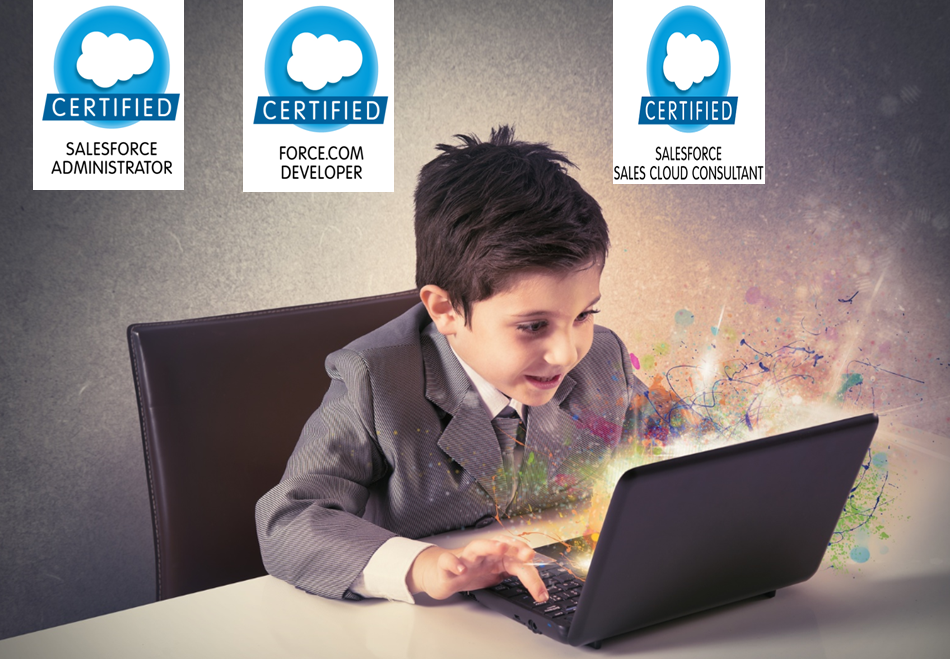
 Guest Blog by Joey Eisenzimmer
Guest Blog by Joey Eisenzimmer
Joey is a graduate of the first Merivis Cohort in Seattle. He has earned multiple Salesforce certifications: Salesforce Administrator, Platform App Builder, Advanced Admin and Platform Developer 1 (PD1). Joey volunteers with Merivis as a coach, serves on the Merivis Alumni Advisory Board and works at Amazon Web Services.” by Joey Eisenzimmer – Joey is a graduate of the first Merivis Cohort in Seattle, who has earned his Salesforce Administrator, Platform App Builder, Advanced Admin, and now Platform Developer 1 (PD1) certification. Joey volunteers with Merivis as a coach, serves on the Merivis Alumni Advisory Board, and works at Amazon Web Services.
Jump on the Developer Trail!
Let’s start with analyzing the exam breakdown for PD1 by topic (highest to lowest):
| Platform Developer 1 Exam Topics | % of Exam |
| Process Automation & Logic | 38% |
| User Interface (UI) | 25% |
| Testing/Debugging/Deployment | 17% |
| Data Modeling & Management | 13% |
| Salesforce Fundamentals | 7% |
Quick Intro
I studied for approximately 7 months before successfully passing the PD1 (DEV: 401) exam. If you’re coming from the declarative side like I did, you’ll get a chance to see how much the platform opens up with programmatic development – and it’s a lot of fun! Below is an overview of exam topics to give those looking to jump into the developer side an idea of what you’ll be learning. Please keep in mind, there is much more behind all of this, however this guide should get the wheels turning. But first…
Why Study PD1?
If your journey into the SFDC ecosystem is anything like mine then you likely started with the coveted Salesforce Administrator certification (ADM: 201). You may be wondering why study and learn coding/SFDC development? That’s a fair question! Here are a few reasons I can share that influenced my decision:
- Job/Career Outlook for Salesforce Developers. Don’t just take it from me, but Salesforce Developer jobs are in high demand! Below are several resources outlining growth of the last several years and outlook for the future. https://www.salesforceben.com/salesforce-developers-the-most-in-demand-salesforce-job/, https://trailhead.salesforce.com/career-path/developer
- Gain additional skills, competencies, and open more doors to new opportunities. You will learn modern best practices for developing in multiple languages on the Salesforce platform (Apex, LWC, HTML, CSS, JavaScript), DevOps, and more. Tied to point #1, the knowledge and skills related to PD1 will open you up to more opportunities. The job market has seen an increase in demand from employers for not just Admins, but those that have some degree of additional technical knowledge, i.e. knowledge of working with Apex, Lightning Web Components, and additional platform languages.
- Improve declarative capabilities. For many of us, learning automation tools like Flow can be challenging. Software development fundamentals can indeed help fill gaps on the declarative side like working with variables, global resources, using dot notation, error handling, and plenty of other areas. Additionally, you’ll start thinking in a very logic oriented fashion, i.e. if this, then do that; else, do this. Also consider For Loops (and other types of loops) your new best friend. If you need to process an unknown amount of records under certain conditions, then you’ll likely be using a For Loop. Don’t let this overwhelm you at all, it sounds like a lot, but take it slow and start learning Flow!
- Increase platform knowledge and challenge myself personally/professionally. There is A LOT powering the Salesforce platform. In my quest to obtain more knowledge I knew the programmatic side was a key way to up my capabilities and proficiency. One of my favorite topics has been learning to use APIs, and http/s callouts that can be used to tie SFDC with an external system like an ERP.
- Enable communication with those more technical than myself. My technical journey has been ongoing for a number of years and kicked off with a coding bootcamp way back in 2018. One thing I’ve loved about starting down this path is the ability to plan and run projects with technically driven goals. In the tech world it’s of course helpful to be able to talk the talk, even so in the Salesforce world. This is by no means required, just something to keep in mind.
- Path to Application Architect and more. If you’re already planning your next steps in the SFDC ecosystem then you may have looked at career paths like Application or System Architect (checkout the Salesforce Architect overview that breaks these paths down). Platform Developer 1 is a required step in either of those journeys.
Study Resources:
- Trailhead
- Focus on Force – study guides and exams
- Apex Academy by David K. Liu hosted on Pluralsight
- Salesforce Platform Developer 1 Certification Guide through Packt (hard copy book or digital)
- Beginning Salesforce Developer (hard copy book) by Michael Wicherski
- Salesforce Developer Docs
- Apex Developer Guide
- Visualforce Developer Guide
- Lightning Web Component Developer Guide
- Apex Developer Guide, Visualforce Developer Guide
- Apex Best Practices: The 15 Apex Commandments
- Sign up for a free Developer Org – build custom apps using a mix of Workflow Rules, Process Builder, Flows, Visualforce, Apex, and Lightning Web Components
How I Found my Trail
When I first moved to the Seattle area in 2016 I was struggling to break into the tech world. A mentor had mentioned checking out Salesforce via Vetforce (now Salesforce Military), so I did, but didn’t understand how everything fit together – the ecosystem, CRM, or the value proposition behind Trailhead and getting certified. Then I found a full time role as an SEO Project Manager and put the whole Salesforce thing on the shelf. About a year and a half later I had the chance to go full time into an SDE Bootcamp, so I left my full time role and also started picking up on Salesforce – and that’s when things began to really click. In early 2019 my focus on Salesforce was all encompassing! I struggled to pass and failed the Admin 201 cert multiple times before attending the first Merivis cohort in the Seattle area at the Salesforce office (June 2019 – go cohort AD9!). About three weeks after the Merivis course I sat and passed the Admin exam making it official – I was Salesforce certified! From there and thanks again to Merivis I was able to land a full time role with AWS working on Salesforce (thanks Hector & Kate 🙂 ). I continued learning both on the job and outside of work, attended Dreamforce 2019, then went on to pass the Platform App Builder certification in January 2020, Advanced Administrator in June 2020, and then Platform Developer 1 in January 2021. I’m also excited to share I’ll be moving into a new role, still with AWS but this time as an SFDC administrator for an org that helps train people (higher education, apprentices, and others) in the AWS Cloud.. dream job! Next up, I’m working on the Sharing and Visibility Designer certification and then I’ll jump to the Data Architecture and Management Designer to finally reach my goal of Application Architect before the end of 2021.


